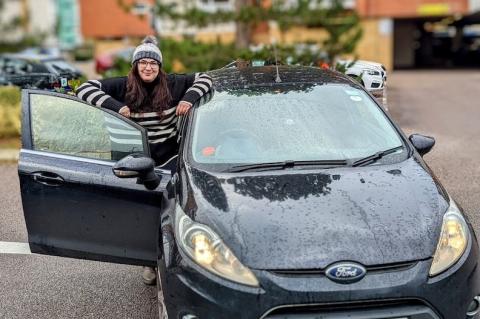
One of the big mysteries of COVID-19 vaccine research is why some people’s immune systems do not respond to vaccination as well as others.
The COVIG study, led by Professor Julian Knight at the University of Oxford, is examining the relation between a person’s genes and their immune response to the vaccines, in order to shed light on whether heritable factors are important in determining our antibody response.
We already know that genetic factors influence responses to other vaccines (such as those against Hepatitis B and rubella). For example, it has been established that part of the genome called the Human Leukocyte Antigen (HLA) region is responsible for encoding key immune molecules that protect us from viruses. The HLA region can vary a great deal in different people.
In order to see what associations might exist between our genetics and our antibody response to the COVID-19 vaccines, the COVIG team set up a collaboration with the Office for National Statistics, who, together with the University of Oxford, ran the separate National COVID-19 Infection Survey involving around 100,000 participants.
Many of these people had agreed to be contacted in future about further studies, and this presented an ideal opportunity to recruit participants for COVIG, as data on their antibody response to vaccination had already been collected.
Starting in August 2021, the team set out to collect DNA samples from people within this group who had either had a high or low antibody response to COVID-19 vaccination, and had no known underlying conditions likely to affect their immune response. The researchers would then study variations in this DNA in order to identify any associations with the levels of antibodies produced.
This part of the study could be done using saliva samples. People were sent a kit with a tube to spit into, and posted the sample back, and this system resulted in a staggering 4,775 samples being received. All of these samples will be used to study and compare variation in individuals’ DNA sequence (by genotyping) and a subgroup of 500 will be used to sequence an individual’s exons (whole exome sequencing) that could identify rarer variants. Exons are a part of the genome that provide instructions for making proteins.
The team then set out to obtain blood samples from a smaller group of around 200 people (selected from the group of 500 undergoing the whole exome sequencing), in order to gain further data for something called immune phenotyping. This would result in extremely rich data from this group.
While the postal system used for the saliva sample collection was comparatively straightforward, collecting blood samples from people up and down the country wasn’t going to be so simple. It would mean liaising with people about their availability and travelling to them to take the necessary blood samples, and this presented a certain logistical challenge that, at first, looked quite daunting.
“To begin with, we thought we might be able to collect the blood samples we needed from people in the Oxford area,” explains Dr Eleanor Karp-Tatham, a post-doctoral researcher working as part of the COVIG team. “But then we realised we’d need to go further afield to get the numbers required and very soon, we were scrutinising Google Maps and drawing up road routes. The logistics were daunting at first, but with a bit of ingenuity, a Ford Fiesta and a small mobile team made up of myself, a phlebotomist and some generous medicine students, we have been able to drive 8,958 miles and have collected 174 blood samples so far."

“People have given their time and effort to offer these samples, so we want to make them go as far as possible. We have four tubes per person and plan to do DNA methylation analysis, antibody and T cell repertoire analysis as well as immunophenotyping. It will give us incredibly rich data, so though the days can be quite long, it will be worth it.”
After travelling the length and breadth of the UK, from Aberdeen to Brighton and beyond, the team hopes their findings will help to shed some light on the specific biological pathways involved in the immune response to the COVID-19 vaccines. If more is known about precisely how the vaccines work at a molecular level, this could help refine future vaccine design.
Ultimately it may also be possible to use this understanding to help inform decisions about who to prioritise for COVID-19 vaccination, and who may need additional protection from other therapies such as monoclonal antibodies.
“People have been incredibly cooperative and flexible, and are often very interested in our work and ask questions about the study while having their blood taken. Many are interested in the process of how DNA is extracted from the blood sample. We’d like to say a huge thank you to all our participants for their time and contribution. I'd also like to thank our Lab Manager Giuseppe Scozzafava, without whom this project would have been impossible," adds Eleanor.
The team expects to have all samples taken by the end of November, and hopes to be able to share its initial results by the end of the year.
COVIG: An immunogenetic approach to guide the need for booster shots and combat immune failure in SARS-CoV-2 vaccine response, is a collaboration between the University of Oxford’s Wellcome Centre for Human Genetics, Paediatrics Department, Peter Medawar Building for Pathogen Research and Experimental Medicine Department, as well as the MRC Human Genetics Unit in Edinburgh, The Pirbright Institute and the Office for National Statistics. It is funded by National Core Studies Immunity.
The study team would like to thank phlebotomists Dr Guillaume Butler-Laporte, David Launer, Maya Humphries, Bana Alamad and Dr Thomas Ritter.
With thanks to Dr Eleanor Karp-Tatham, who took time out of her busy driving schedule to be interviewed.
